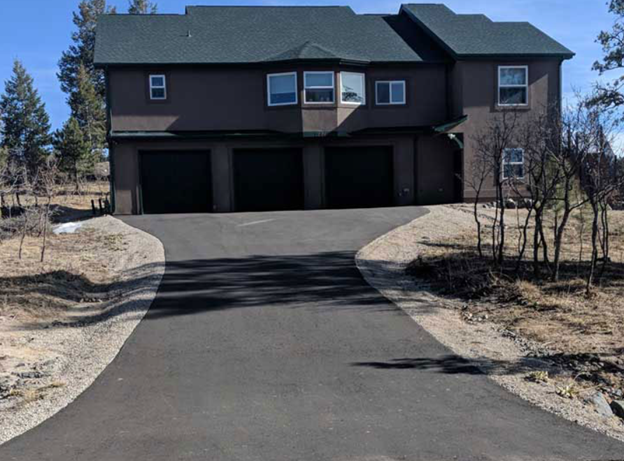
10/5/2023
UNDERSTANDING THE COST, BENEFITS, AND LONG-TERM SAVINGS OF ASPHALT.
When it comes to enhancing the curb appeal of your home while simultaneously providing a durable and functional surface for your vehicles, an asphalt driveway often stands out as an excellent choice. However, the decision to install an asphalt driveway isn’t merely a matter of aesthetics; it’s also an economic one. In this blog post, we will delve into the economics of an asphalt driveway, discussing its initial cost, long-term benefits, and potential savings.
The Initial Cost
Before diving into the economics of asphalt driveways, let’s address the initial cost. The price of installing an asphalt driveway can vary significantly based on several factors, including the size of the area, local labor and material costs, and additional features like drainage systems or decorative elements. On average, you can expect to pay between $2,000 and $7,000 for a standard residential driveway.
While this initial investment might seem steep, it’s essential to consider the long-term economic benefits that asphalt driveways offer.
Durability and Low Maintenance
One of the primary economic advantages of an asphalt driveway is its exceptional durability. Asphalt is a material known for its ability to withstand heavy loads and harsh weather conditions. Properly installed and maintained, an asphalt driveway can last anywhere from 15 to 30 years, making it a long-term investment that pays off over time.
Asphalt driveways require relatively low maintenance compared to alternatives like concrete. Routine maintenance tasks, such as seal coating every few years and filling in cracks, can extend the lifespan of your driveway and prevent costly repairs. These maintenance activities are relatively inexpensive when compared to the cost of replacing an entire driveway.
Curb Appeal and Property Value
Beyond its functional benefits, an asphalt driveway can enhance the curb appeal of your home. A well-maintained driveway not only looks aesthetically pleasing but also adds value to your property. If you ever decide to sell your home, having a smooth, attractive driveway can be a significant selling point that increases the overall value of your property.
Savings Over Time
To understand the true economics of an asphalt driveway, it’s crucial to consider the potential savings over time. Here are some ways in which you can save money in the long run.
Reduced Repair Costs
Asphalt driveways are less prone to cracking and damage than concrete driveways. This means fewer repair costs over the life of the driveway.
Lower Maintenance Costs
Routine maintenance, such as seal coating and crack filling, is more cost-effective than major repairs or replacements.
Improved Energy Efficiency
Asphalt’s dark color absorbs heat, which can help melt snow and ice faster during the winter months. This can lead to lower snow removal costs and reduced wear and tear on your driveway.
Increased Property Value
As mentioned earlier, an attractive and well-maintained driveway can boost your property’s value, potentially yielding a higher selling price when you decide to sell your home.
While the initial cost of installing an asphalt driveway may give you pause, it’s crucial to consider the long-term economic benefits. Asphalt driveways offer exceptional durability, low maintenance requirements, and the potential for increased property value. When you factor in these benefits and the potential savings over time, an @asphalt driveway becomes not just an investment in your home’s aesthetics but also in its long-term economic value. So, if you’re looking to enhance your property and make a wise financial choice, an asphalt driveway might be the perfect solution.



